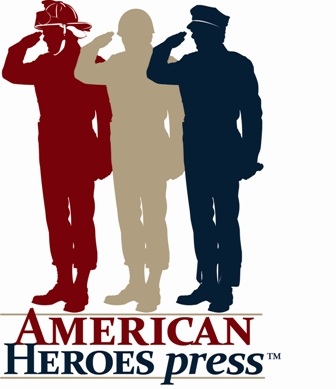(Click on book title for details or purchase)
The 13th Valley
A fine novel on the Vietnam War, this book contains great characterizations and excellent descriptions of smallunit
infantry operations, but it has too much philosophy.
Our Great Spring Victory: An Account of the Liberation of South Vietnam
The commander of the 1975 North Vietnamese military campaign wrote a battle diary that was first published as a
series of newspaper articles. This translation is an account of the North Vietnamese victory, with information on military
strategy and the coordination between the leadership in Hanoi and generals in the field.
Dear America: Letters Home from Vietnam
Edelman's collection of letters written by soldiers in Vietnam provides an intimate view of life and death in a combat zone. Readers
are privileged to share the private thoughts of soldiers writing home and gain some unique insights about those caught up
in the long, unpopular war.
Hell in a Very Small Place: The Siege of Dien Bien Phu
Fall, who was killed in Vietnam, used his expertise, access to French files, and interviews of
participants to produce this detailed and engrossing account of the French defeat by the Vietminh at Dien Bien Phu after a 56-day siege in 1954. His
descriptions of air sorties, land defenses, airdrops, and French military planning are masterfully done. Fall has been criticized
for his pro-French views.
Street Without Joy
The author, who was a foremost authority on conflict and nationalism in Southeast Asia, vividly describes the French actions in Indochina and the growing U.S. involvement. His writings are helpful
for those studying guerrilla tactics and operations.
The Two Vietnams: A Political and Military Analysis
This study describes Vietnam's physical setting and traces the history of both North and South Vietnam. Though dated, this book is still
a valuable guide to the problems of Vietnam prior to fall-scale U.S. involvement. Also included are biographies
of North Vietnamese leaders.
People's War, People's Army
Vo Nguyen Giap, defense minister and commander of the North Vietnamese Army, presents the North Vietnamese way of
war as a guide to "just wars of national liberation." Even though this collection of material is propagandistic and disorganized,
it still explains why and how the North Vietnamese conducted their insurgency. This is a classic description of modern warfare.
Silence Was a Weapon: The Vietnam War in the Villages
This U.S. Army officer, who is still on active duty, provides an outstanding personal account of his
attempt to gain popular support for the defense of a South Vietnamese village.
Vietnam: A History
Karnow gives an accurate, balanced history of the Vietnam War. This volume is used as a text for the Vietnam War
elective course at the U.S. Army Command and General Staff College.
The Army and Vietnam
The author, a U.S. Army officer with a doctorate in international relations, offers an incisive
analysis of the development and failure of U.S. military policy in Vietnam from 1954 to 1973. Krepinevich makes
it clear that conventional war doctrine accompanied by massive use of firepower will not defeat an insurgency. This book is
essential for any officer who wants to speak knowledgeably about the Vietnam War.
Platoon Leader : A Memoir of Command in Combat
A U.S. Military Academy graduate relates his experiences as a platoon leader with the 173d Airborne Brigade in 1972-73.
The Tunnels of Cu Chi
This exciting account of the underground tunnel war in Vietnam is readable, balanced, and accurate. The authors use firsthand
accounts from participants on all sides who fought over and used the tunnel networks of the Cu Chi district near Saigon.
Chickenhawk
Mason, a warrant officer helicopter pilot, contributes a vivid and fascinating account of his tour in Vietnam in 1965-66.
The 25-Year War: America's Military
Role in Vietnam
This work contains a U.S. Army general's personal perspective on the high-level aspects of the Vietnam War.
Pavn: People's Army of Vietnam
In this work, Douglas Pike, the American authority on the history of the People's Army of Vietnam (PAVN) and Vietnamese communism, discusses
the history and heritage of the PAVN and its organization, administration, political leadership, and strategy. Pike explains
how a small, underdeveloped, poverty-ridden country created the third largest military force in the world. Included in this
volume are biographical summaries of PAVN leaders.
War Comes to Long an: Revolutionary Conflict in a Vietnamese Province
This is an instructive study for understanding why the Communist-guided revolutionary social movement succeeded
in a Vietnamese province and why the U.S.-South Vietnamese counterrevolutionary initiative consistently failed. Race uses
firsthand information, but his perspective is balanced; he lets his extensive research speak for itself.
Advice and Support: The Early Years of the United States Army in Vietnam, 1941-1966
Setting high standards of scholarship, balance, and readability, this first volume in the U.S. Army's official history
of the Vietnam War describes the activities of the Army in Vietnam during World War II, military advice and assistance to
the French government during the postwar years, and the adviser program that developed between 1954 and 1960.
Fields of Fire
A former Marine captain, now secretary of the Navy, wrote this splendid novel and combat narrative of the Vietnam
War. Webb vividly depicts the diverse characters of a Marine platoon, grunts who slogged their war through months of warfare
in rice paddies and jungles. The tragedy, irony, and camaraderie of war are ably depicted here
